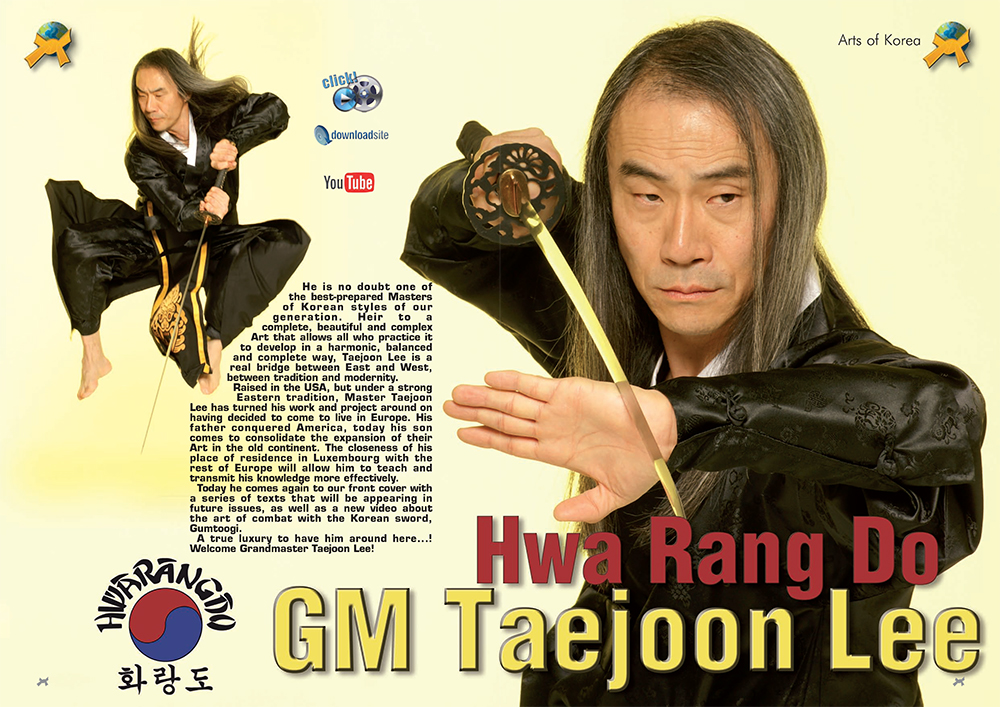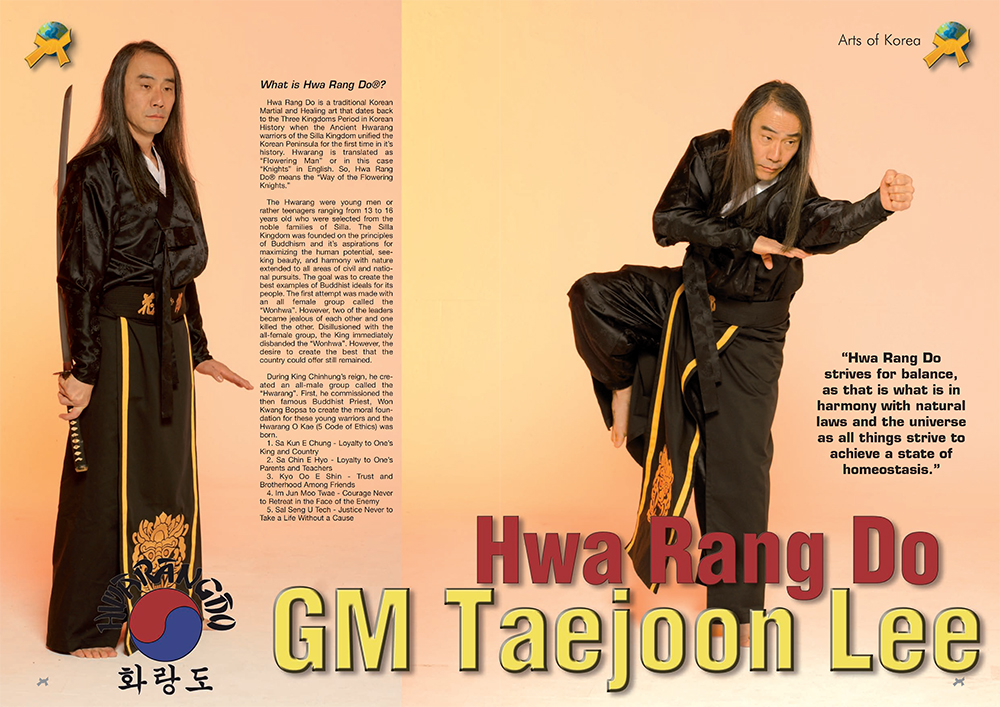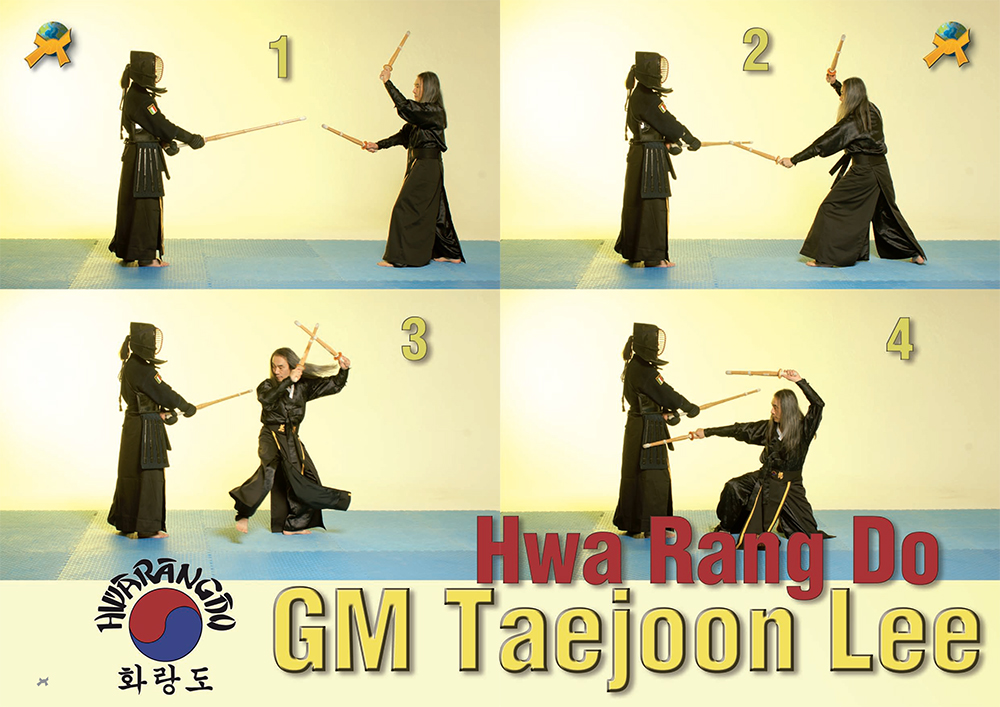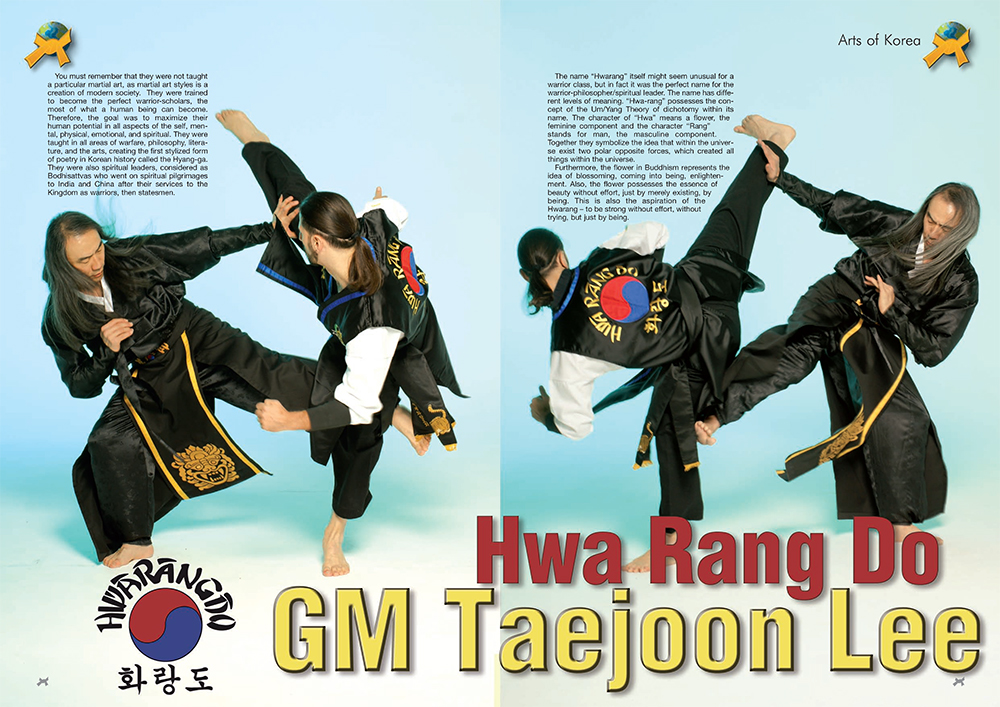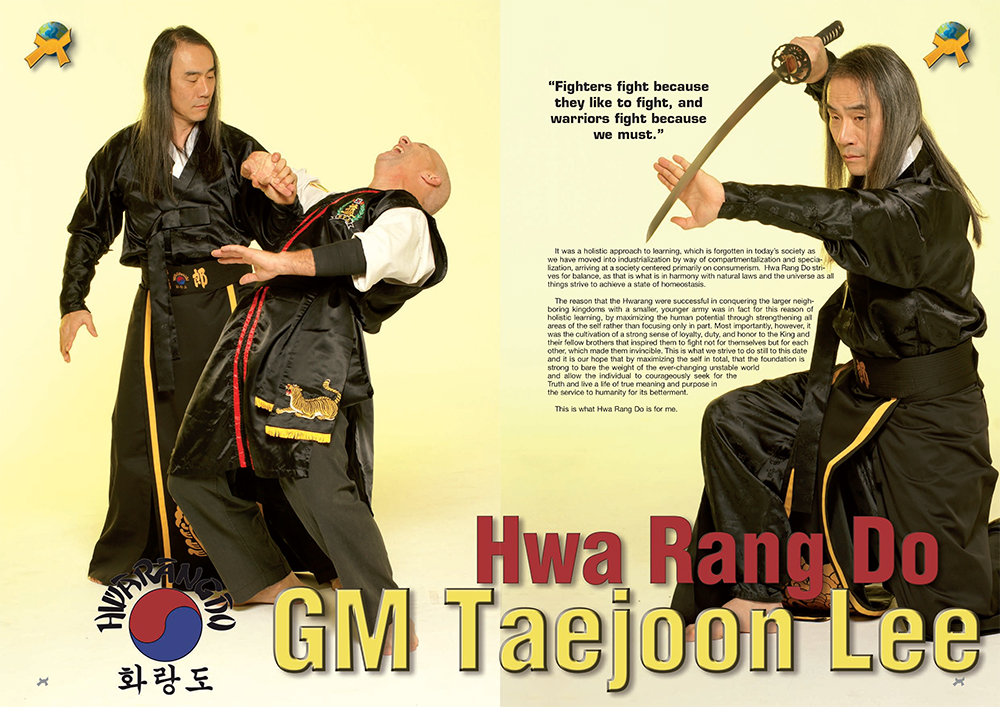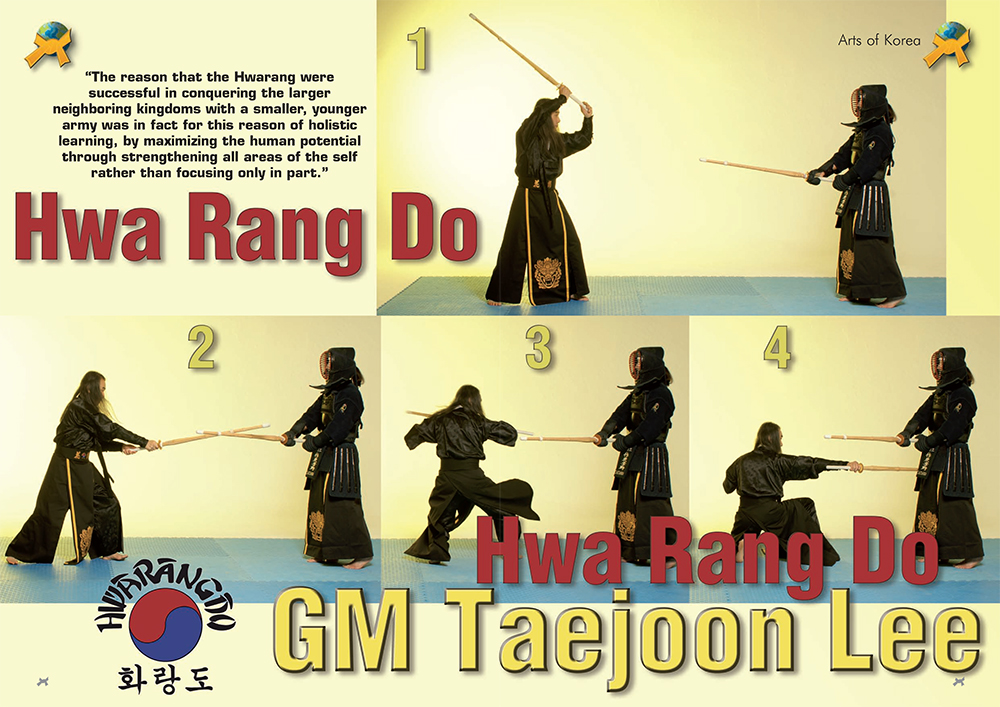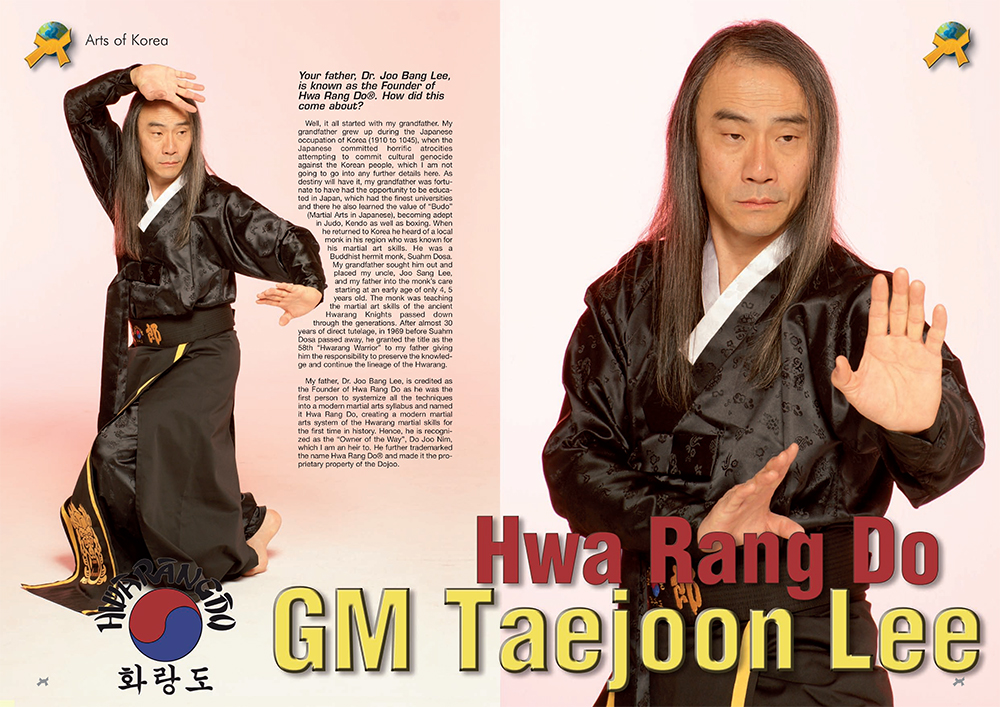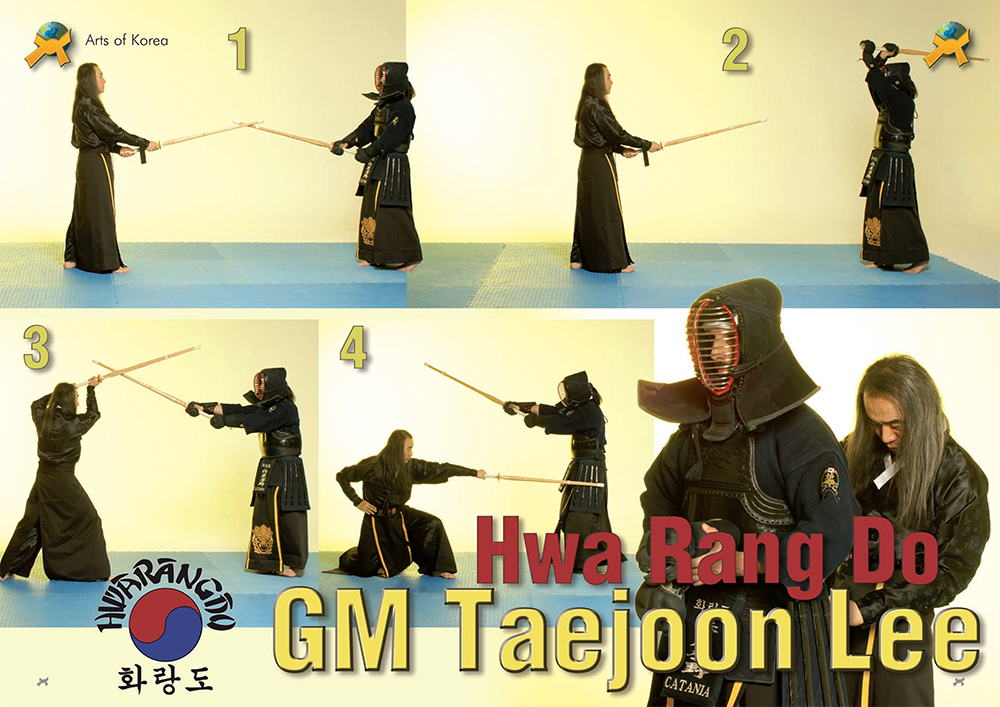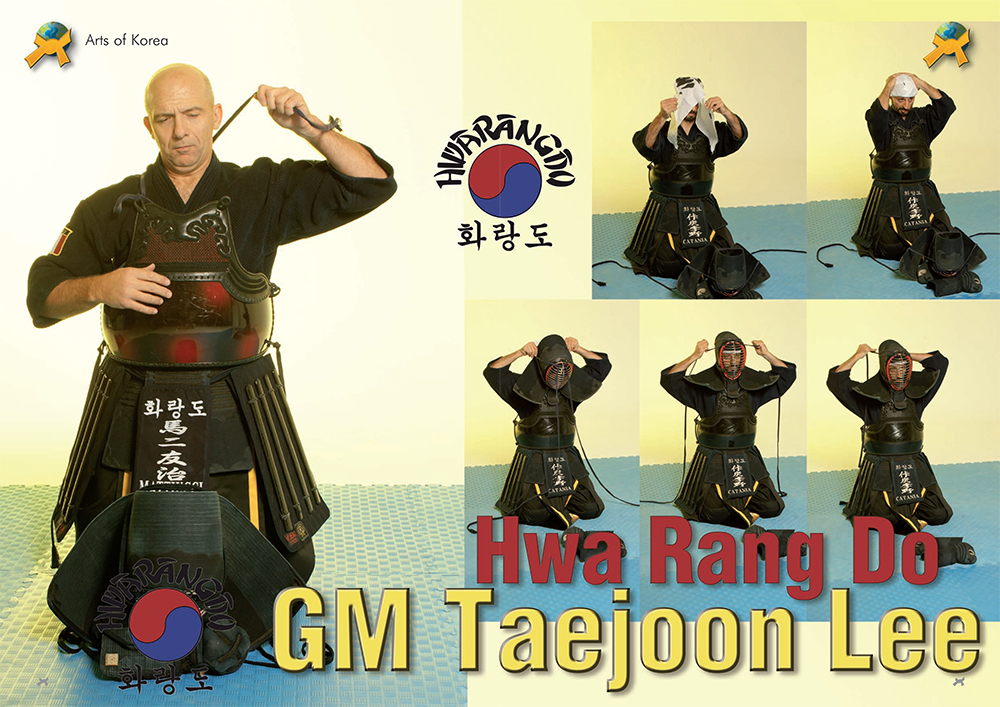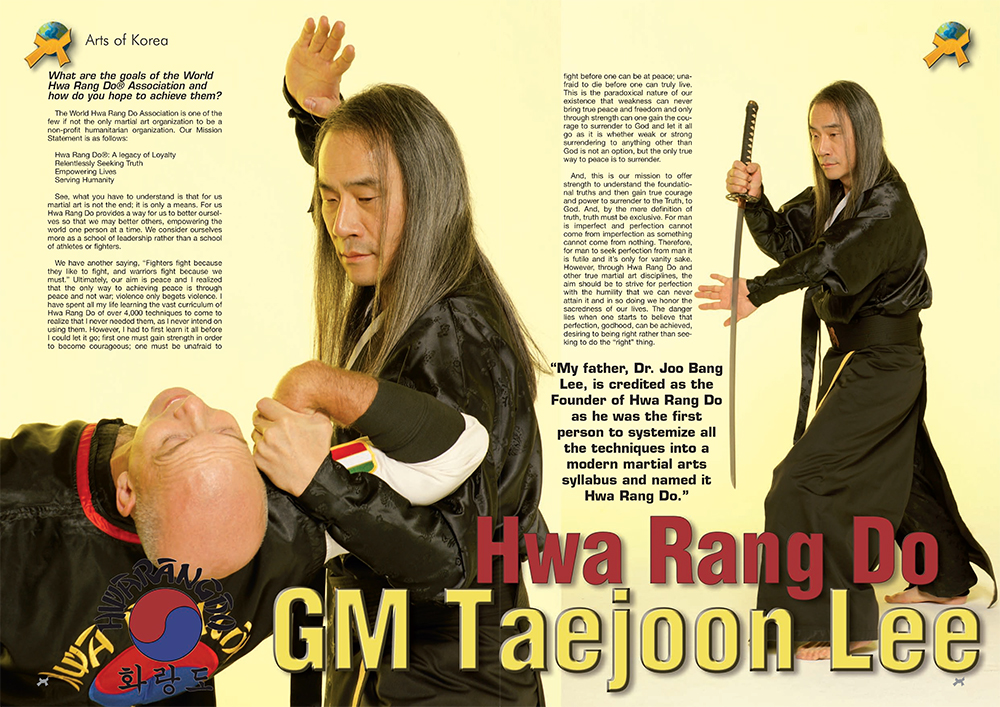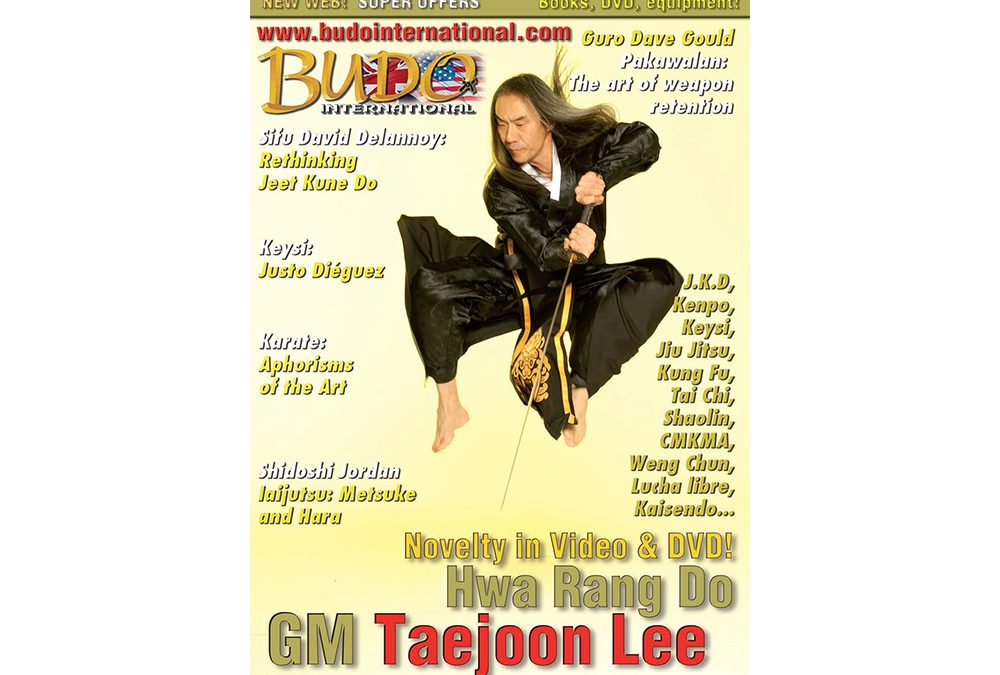Grandmaster Taejoon Lee’s Interview by Budo International
Part 1
What is Hwa Rang Do®?
Hwa Rang Do is a traditional Korean Martial and Healing art that dates back to the Three Kingdoms Period in Korean History when the Ancient Hwarang warriors of the Silla Kingdom unified the Korean Peninsula for the first time in it’s history. Hwarang is translated as “Flowering Man” or in this case “Knights” in English. So, Hwa Rang Do® means the “Way of the Flowering Knights.”
The Hwarang were young men or rather teenagers ranging from 13 to 16 years old who were selected from the noble families of Silla. The Silla Kingdom was founded on the principles of Buddhism and it’s aspirations for maximizing the human potential, seeking beauty, and harmony with nature extended to all areas of civil and national pursuits. The goal was to create the best examples of Buddhist ideals for its people. The first attempt was made with an all female group called the “Wonhwa”. However, two of the leaders became jealous of each other and one killed the other. Disillusioned with the all-female group, the King immediately disbanded the “Wonhwa”. However, the desire to create the best that the country could offer still remained.
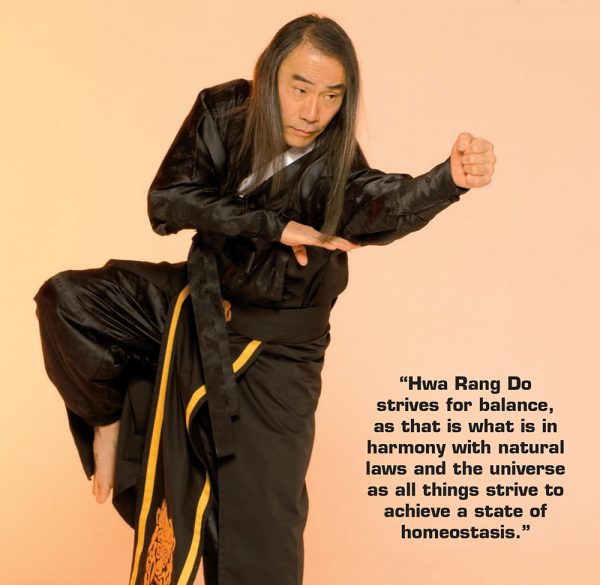
During King Chinhung’s reign, he created an all-male group called the “Hwarang”. First, he commissioned the then famous Buddhist Priest, Won Kwang Bopsa to create the moral foundation for these young warriors and the Hwarang O Kae (5 Code of Ethics) was born.
- Sa Kun E Chung – Loyalty to One’s King and Country
- Sa Chin E Hyo – Loyalty to One’s Parents and Teachers
- Kyo Oo E Shin – Trust and Brotherhood Among Friends
- Im Jun Moo Twae – Courage Never to Retreat in the Face of the Enemy
- Sal Seng U Tech – Justice Never to Take a Life Without a Cause
You must remember that they were not taught a particular martial art, as martial art styles is a creation of modern society. They were trained to become the perfect warrior-scholars, the most of what a human being can become. Therefore, the goal was to maximize their human potential in all aspects of the self, mental, physical, emotional, and spiritual. They were taught in all areas of warfare, philosophy, literature, and the arts, creating the first stylized form of poetry in Korean history called the Hyang-ga. They were also spiritual leaders, considered as Bodhisattvas who went on spiritual pilgrimages to India and China after their services to the Kingdom as warriors, then statesmen.
The name “Hwarang” itself might seem unusual for a warrior class, but in fact it was the perfect name for the warrior-philosopher/spiritual leader. The name has different levels of meaning. “Hwa-rang” possesses the concept of the Um/Yang Theory of dichotomy within its name. The character of “Hwa” means a flower, the feminine component and the character “Rang” stands for man, the masculine component. Together they symbolize the idea that within the universe exist two polar opposite forces, which created all things within the universe.
Furthermore, the flower in Buddhism represents the idea of blossoming, coming into being, enlightenment. Also, the flower possesses the essence of beauty without effort, just by merely existing, by being. This is also the aspiration of the Hwarang – to be strong without effort, without trying, but just by being.
It was a holistic approach to learning, which is forgotten in today’s society as we have moved into industrialization by way of compartmentalization and specialization, arriving at a society centered primarily on consumerism. Hwa Rang Do strives for balance, as that is what is in harmony with natural laws and the universe as all things strive to achieve a state of homeostasis.
The reason that the Hwarang were successful in conquering the larger neighboring kingdoms with a smaller, younger army was in fact for this reason of holistic learning, by maximizing the human potential through strengthening all areas of the self rather than focusing only in part. Most importantly, however, it was the cultivation of a strong sense of loyalty, duty, and honor to the King and their fellow brothers that inspired them to fight not for themselves but for each other, which made them invincible. This is what we strive to do still to this date and it is our hope that by maximizing the self in total, that the foundation is strong to bare the weight of the ever-changing unstable world and allow the individual to courageously seek for the Truth and live a life of true meaning and purpose in the service to humanity for its betterment.
This is what Hwa Rang Do is for me.
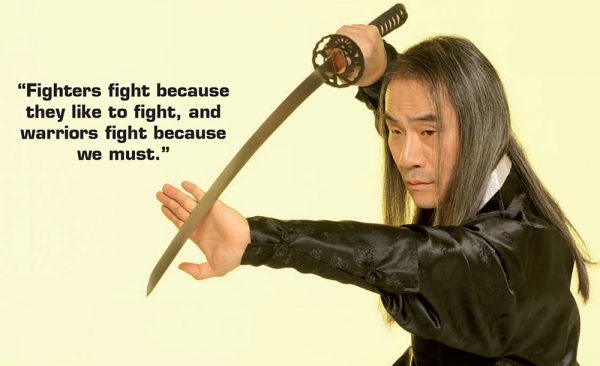
Your father, Dr. Joo Bang Lee, is known as the Founder of Hwa Rang Do®. How did this come about?
Well, it all started with my grandfather. My grandfather grew up during the Japanese occupation of Korea (1910 to 1045), when the Japanese committed horrific atrocities attempting to commit cultural genocide against the Korean people, which I am not going to go into any further details here. As destiny will have it, my grandfather was fortunate to have had the opportunity to be educated in Japan, which had the finest universities and there he also learned the value of “Budo” (Martial Arts in Japanese), becoming adept in Judo, Kendo as well as boxing. When he returned to Korea he heard of a local monk in his region who was known for his martial art skills. He was a Buddhist hermit monk, Suahm Dosa. My grandfather sought him out and placed my uncle, Joo Sang Lee, and my father into the monk’s care starting at an early age of only 4, 5 years old. The monk was teaching the martial art skills of the ancient Hwarang Knights passed down through the generations. After almost 30 years of direct tutelage, in 1969 before Suahm Dosa passed away, he granted the title as the 58th “Hwarang Warrior” to my father giving him the responsibility to preserve the knowledge and continue the lineage of the Hwarang.
My father, Dr. Joo Bang Lee, is credited as the Founder of Hwa Rang Do as he was the first person to systemize all the techniques into a modern martial arts syllabus and named it Hwa Rang Do, creating a modern martial arts system of the Hwarang martial skills for the first time in history. Hence, he is recognized as the “Owner of the Way”, Do Joo Nim, which I am an heir to. He further trademarked the name Hwa Rang Do® and made it the proprietary property of the Dojoo.
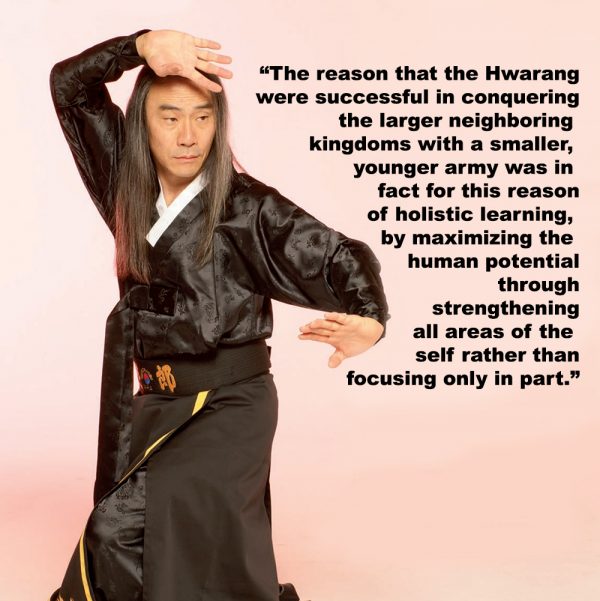
What are the goals of the World Hwa Rang Do® Association and how do you hope to achieve them?
The World Hwa Rang Do Association is one of the few if not the only martial art organization to be a non-profit humanitarian organization. Our Mission Statement is as follows:
Hwa Rang Do®: A legacy of Loyalty
Relentlessly Seeking Truth
Empowering Lives
Serving Humanity
See, what you have to understand is that for us martial art is not the end; it is only a means. For us Hwa Rang Do provides a way for us to better ourselves so that we may better others, empowering the world one person at a time. We consider ourselves more as a school of leadership rather than a school of athletes or fighters.
We have another saying, “Fighters fight because they like to fight, and warriors fight because we must.” Ultimately, our aim is peace and I realized that the only way to achieving peace is through peace and not war; violence only begets violence. I have spent all my life learning the vast curriculum of Hwa Rang Do of over 4,000 techniques to come to realize that I never needed them, as I never intend on using them. However, I had to first learn it all before I could let it go; first one must gain strength in order to become courageous; one must be unafraid to fight before one can be at peace; unafraid to die before one can truly live. This is the paradoxical nature of our existence that weakness can never bring true peace and freedom and only through strength can one gain the courage to surrender to God and let it all go as it is whether weak or strong surrendering to anything other than God is not an option, but the only true way to peace is to surrender.
And, this is our mission to offer strength to understand the foundational truths and then gain true courage and power to surrender to the Truth, to God. And, by the mere definition of truth, truth must be exclusive. For man is imperfect and perfection cannot come from imperfection as something cannot come from nothing. Therefore, for man to seek perfection from man it is futile and it’s only for vanity sake. However, through Hwa Rang Do and other true martial art disciplines, the aim should be to strive for perfection with the humility that we can never attain it and in so doing we honor the sacredness of our lives. The danger lies when one starts to believe that perfection, godhood, can be achieved, desiring to being right rather than seeking to do the “right” thing.
